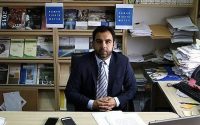$100 Website Offer
Get your personal website + domain for just $100.
Limited Time Offer!
Claim Your Website NowLockdown delays justice, but technology not a priority in POCSO courts yet
Source:-citizenmatters
“It has become a matter of routine for me to go to the police station once in every ten days,” says an inconsolable Kavita (name changed). Since this March, she has been desperately pleading with the cops at the Maduravoyal Police Station, asking them to do what it takes to ensure justice for her 10-year-old daughter.
Kavita’s daughter was raped and killed by their 29-year-old neighbour five months ago. The girl who woke up in the middle of the night to go to the loo, which is detached from their house, never came back to sleep next to her mother.
This incident is undoubtedly as gruesome as Hasini’s rape case that shook not just Chennai, but the entire nation. The culprit in the Maduravoyal rape case has admitted to having raped and flung her off the terrace. However, this incident that happened just two days before India entered lockdown 1.0 did not occupy headlines or invoke angry protests. It is just Case no 205/2020 on the files of the Maduravoyal Police Station.
Killer on the loose
Maduravoyal Police have investigated the case and filed the charge sheet at the special court for Prevention of Children from Sexual Offenses (POCSO) cases in Madras High Court. But the charge sheet has not been approved, just for want of a signature from the Additional Public Prosecutor (ADP). The accused is now out on bail after remand in custody for 90 days.
Admitting the delay, yet refraining from fixing responsibility on either the judiciary or the police department, Maduravoyal Police Station Sub Inspector Velraj said that they have done their best, under the prevailing circumstances. “From getting the potency test done (on the accused) to filing the charge sheet, we encountered many hassles due to the lockdown. He is now out on mandatory bail,” the SI said.
If the charge sheet, which also levelled charges under the Goondas Act on the accused, had been approved by the ADP, the killer would not be enjoying his freedom now.
While there have been strong demands for settlement of POCSO cases within six months, the Maduravoyal case is yet to be admitted in court. It is the job of the ADP to proofread the charge sheet, verify the sections included and approve it with a signature. While this can be done through email, the ADP does not appear keen on prioritising it.
“He could check the charge sheet on the mail and sign it. These are the employees who are receiving their salaries and are capable of working remotely. Such delay is unpardonable,” says V Kannadasan, Advocate, Madras High Court. Kannadasan has been fighting POCSO cases for more than eight years now.
Crucial cases on the backburner
Meanwhile, the family languishes in despair. “The only reason we are still in Chennai is because we want to see justice for our ‘beti’. We would like to leave this place immediately once we have secured that,” says Kavita’s husband, who earns a living by selling snacks.
The family migrated from Rajasthan twelve years ago, and chose to make Chennai their home for the sake of their daughter’s education. Having seen the child meet such a brutal end, they are now in the throes of depression and the delay in court proceedings is only adding to their misery.
But they are probably not the only ones. Many important cases are pending because the special courts have not been able to embrace technology and speed up the proceedings during the lockdown. Take the 2015 Ponneri rape case, for example.
A 13-year-old girl with cerebral palsy was sexually abused by a headmaster, and the Tiruvallur Court passed a judgement in favour of the accused. However, thanks to persistent probing by organisations, it was proved that a corrupt Public Prosecutor had misled the case.
The Public Prosecutor was soon removed from his post. However, the appeal against the acquittal of the case is yet to be admitted in the Madras High Court.
“It can be done through video conferencing. None of the parties need to come to the court for admission,” says Sherin Bosko, co-founder of Nakshatra. But it has not been done. Many such cases that saw speedy progress before the lockdown have been sidelined now, owing to the current situation.
Another important case dates back to 2015, where a girl in Class 10 was raped by a neighbour for many months and was found pregnant. Following the appeal for a speedy trial, the case reached the stage of judgment before the lockdown. But since then, it has not seen any development for four months now.
Why aren’t courts tech-savvy?
With only 50% of staff, courts are finding it tough to dispose of as many cases as they were before the pandemic. However, the Madras High Court has adapted to the crisis by conducting court proceedings online.
“We send the list of cases to be filed on a mail, even though the hard copy is later submitted. From the admission of cases to proceedings of the trial, the online working mode is working out for the Madras High Court,” feels K Kalaichelvan, advocate, Madras High Court.
Even trials of criminal cases have been conducted through video conferencing, with advocates of both parties and the bench of judges logging in from their respective offices. On an average day, Madras High Court hears at least 40 cases, as per the list.
If Madras High Court could do it, why not the special courts? The explanations given by the court staff are not convincing enough.
“Chennai Mahila court lacks important features such as separate waiting halls for victims and the accused, as well as child-friendly courtrooms (with pictorial representations that make it easy for children to convey the abuse). Any funds granted would first be used to upgrade such infrastructure,” said an informed source from the Mahila Court.
Adopting technology is, therefore, not in the priority agenda of the court mired in infrastructural lapses. “There has been no talk about technology yet,” the source confirmed.
“Delay in justice adds to the distress of victims’ families and works in favour of culprits. The Supreme Court should direct special courts to bridge the gaps in the system and enable the usage of technology in courtrooms,” emphasises Kanya Babu, co-founder of All India Movement for Service (AIMS), an organisation fighting for the rights of children. AIMS has sent a representation on the subject to the Chief Justice of India and all other courts.



